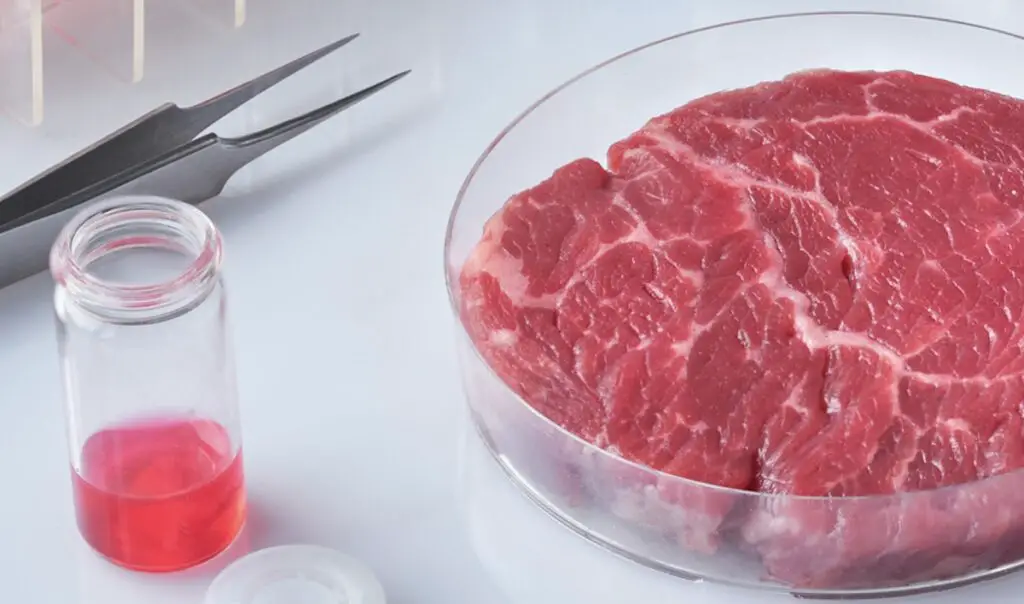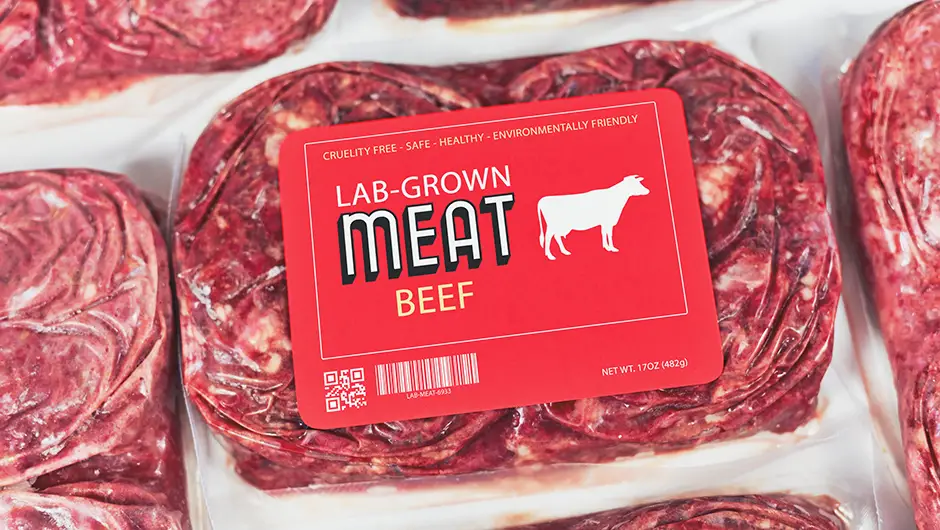Cultured meat, sometimes called lab-grown, clean, or cultivated meat, is grown in a lab from a few animal cells. It’s real meat, but it doesn’t require animals to be slaughtered the way traditional meat does. The idea is to create a more ecologically friendly and humane meat industry. Some industry experts think this process, called cellular agriculture, is the wave of the future. By the end of 2019, 55 companies worldwide were working on it. But it’s still early days for cultured meat.
In a significant move, Florida Governor Ron DeSantis signed a bill banning and criminalizing the manufacture and sale of lab-grown meat in the state. This decision aligns with similar efforts in states like Alabama, Arizona, and Tennessee, aiming to curb the sale of a technology that is still in its early stages of development.
Lab-Grown Meat: A Climate-Friendly Alternative
Lab-grown meat, also known as cultivated meat, has garnered attention for its potential to provide a climate-friendly alternative to traditional meat sources. Startups have invested heavily in this technology, with the goal of creating meat from animal cells in a controlled environment. However, the process of scaling up production for commercial sale remains challenging.

Concerns and Criticisms
Florida’s ban has drawn criticism from companies in the cultivated meat industry, who argue that it stifles innovation and competitiveness on a global scale. They believe that the United States has a significant lead in alternative proteins and that such legislation could jeopardize this position.
Global Competition and Future Food Security
China, a major competitor in the cultivated meat industry, has included this technology in its agricultural plan as a strategy to address greenhouse gas emissions and food scarcity. Some lawmakers, like Lori Berman, view cultivated meat as a potential solution to future food shortage problems and criticize the ban for hindering innovation.
National Security and Health Concerns
Supporters of the ban, including Florida Agriculture Commissioner Wilton Simpson, argue that concentrating protein production in factories could pose a national security risk. They also express concerns about the health implications of lab-grown meat, calling for more research to assess its nutritional value compared to real meat.

Economic Impact and Consumer Choice
The ban has sparked debate about consumer choice and the future of food. While some, like Justin Tupper of the United States Cattlemen’s Association, applaud the decision to protect the reputation of traditional meat, others see it as a hindrance to progress and a missed opportunity for innovation.
Conclusion: The Future of Lab-Grown Meat
Despite the ban, proponents of lab-grown meat remain optimistic about its potential. They believe that, given time, cultivated meat could become a viable and sustainable alternative to traditional meat production. As the debate continues, it is clear that the future of food will be shaped by innovation, regulation, and consumer choice.

